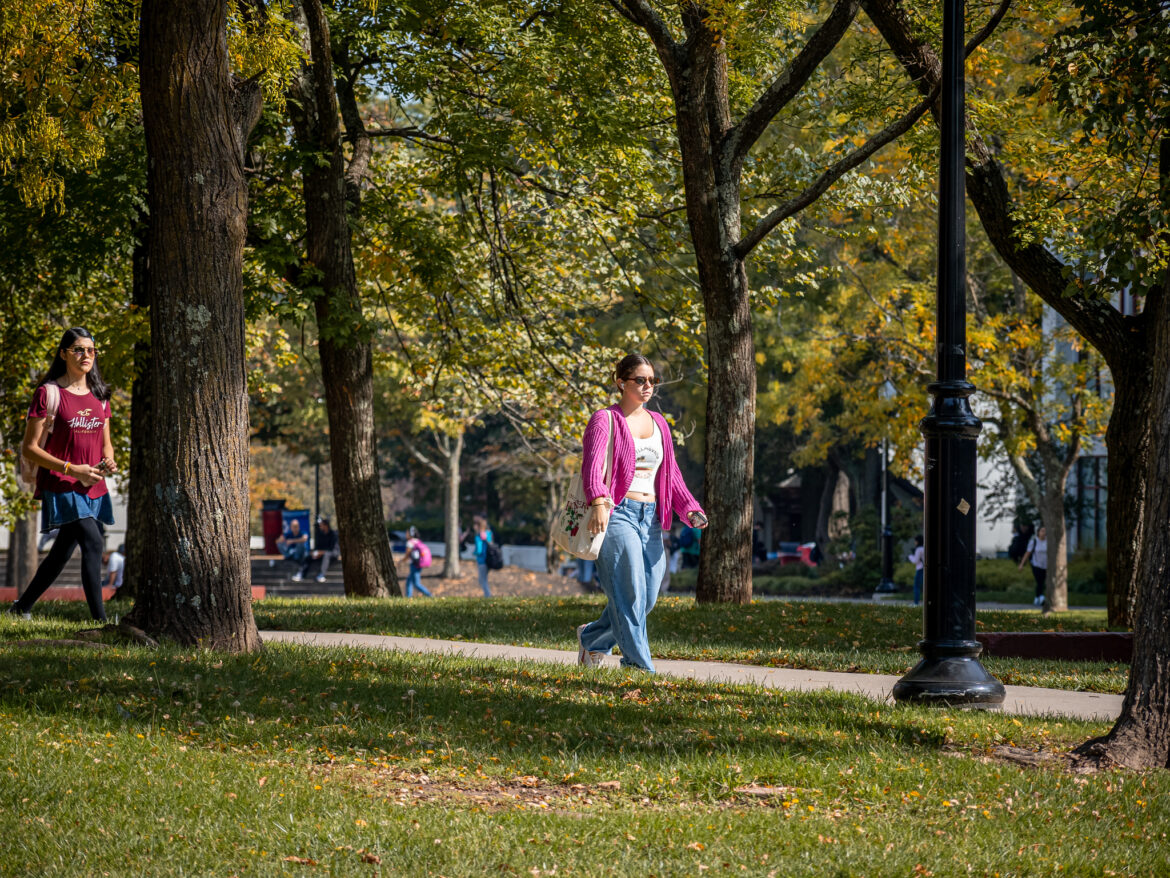The Montclair State University Mental Health Ambassador Program, introduced by Counseling and Psychological Services (CAPS), allows student ambassadors to provide mental health outreach to their peers through tabling events and trainings.
Sudha Wadhwani, staff psychologist, shared when the program began and the outcomes of students who have been mental health ambassadors.
“The CAPS Mental Health Ambassadors position started in 2009,” Wadhwani said. “Back then we called it the ‘CAPS Empowerment Ambassador’ program. We have had wonderful student leaders over the years, many of whom are now psychologists and mental health professionals themselves.”
Melissa Zarin, associate director of CAPS, explained how the program contributes to the mental well-being of students.
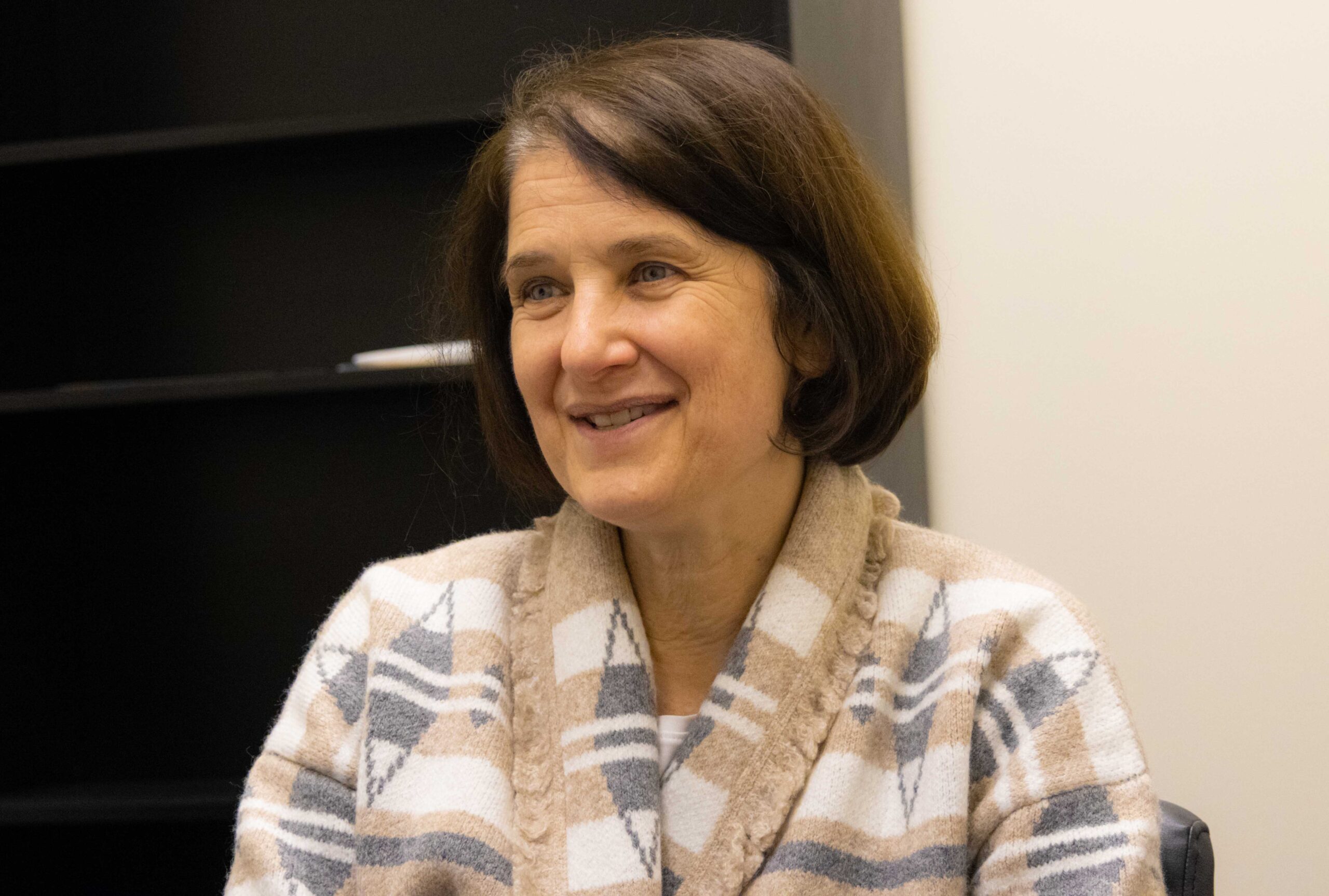
Melissa Zarin, associate director of CAPS. Allen Macaraeg | The Montclarion
“One of the things that we know in the literature and research is that students learn better from other students,” Zarin said. “Students are more open to mental health if they see other students talking about it and doing it and being comfortable with it.”
Zarin also shared the goal of the program is for the ambassadors to represent CAPS and their peers by talking about mental health and the services available at Montclair State.
The selection process for ambassadors consists of an interview process and once chosen, a two day training. The training, hosted by staff clinician and coordinator of outreach and prevention Tiffany Ciprian, consists of an interactive mental health curriculum to educate ambassadors on both CAPS and mental health.
“[Ciprian] designs a really good curriculum for them that includes first and foremost a CAPS 101, so sort of what CAPS does here on campus,” Zarin said. “We make sure they can fluently talk about the counseling center, our services [and] answer questions for students. They also then get trained in mental health, so they will get a intro to mental health training and all of these trainings are really interactive because there’s only about twelve [ambassadors].”
The ambassadors host their own events throughout the semester.
“Student ambassadors host their own, usually stress event every other week in our outreach space,” Zarin said. “I know they recently did a self love one for Valentine’s Day and they made a lot of self care items. Additionally then they’ll support us for programs like during mental health awareness week [and] suicide prevention. They’ve done rock painting, stress ball making, coloring [and] essential oil bracelets.”
Zarin shared the future goals for the program.
“[The ambassadors] always bring to the table things they want to do as well,” Zarin said. “I think right now because they’re volunteers, we don’t want to tax them too much. I would say what expands or changes is the types of trainings they want to do or if they want to offer workshops.”
Samantha Alvarez is a mental health ambassador. She shared why she chose to join the program.
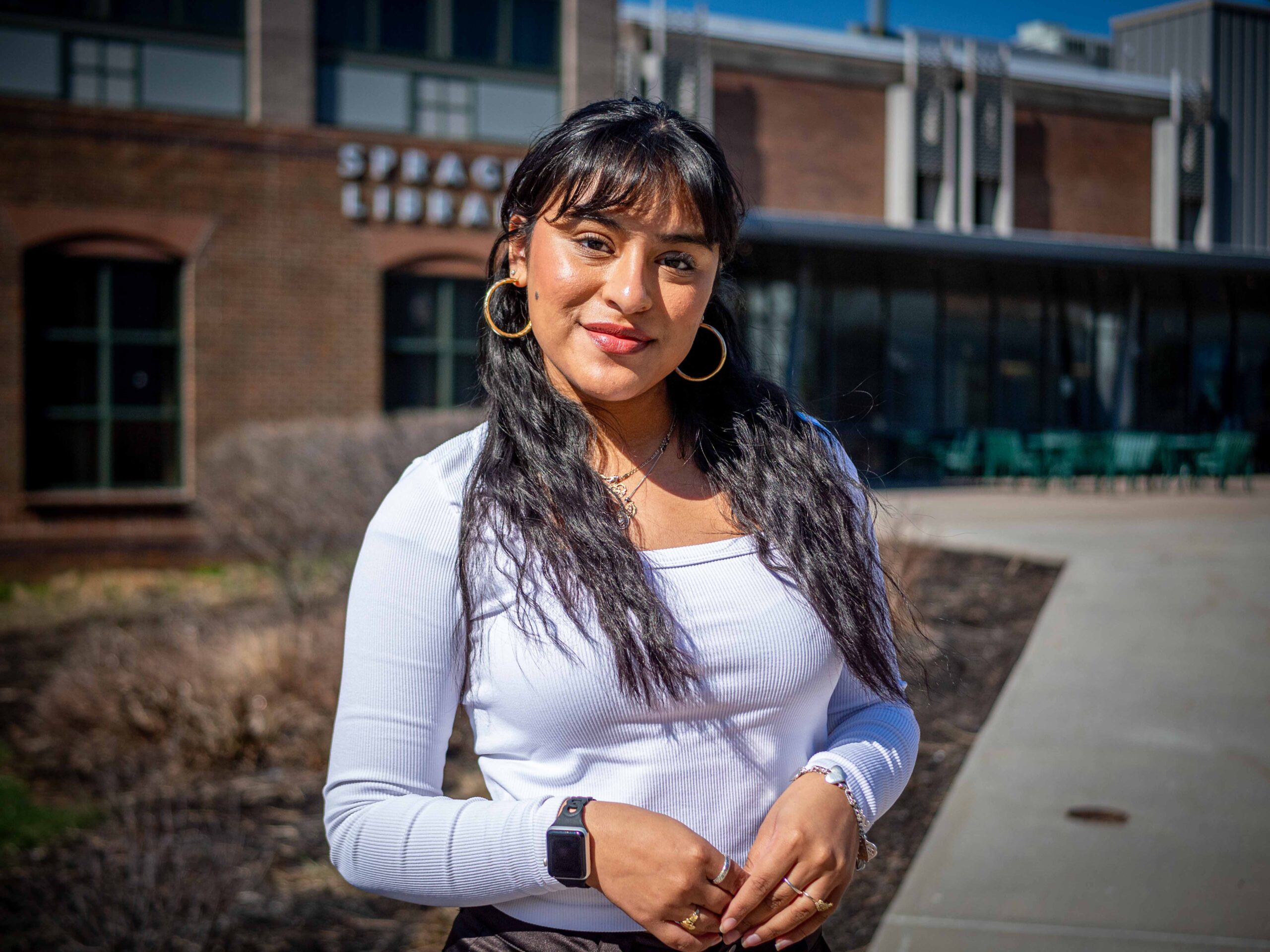
Samantha Alvarez, mental health ambassador. Karsten Englander | The Montclarion
“I wanted to get involved in campus and I also just wanted to help spread awareness on mental health, especially among college students,” Alvarez said. “I feel like it’s really important to prioritize not just our physical health but our mental health, especially as college students because we’re growing and we’re going through a lot of change.”
Alvarez explained how being part of the program impacted her understanding of mental health.
“My involvement has definitely helped me understand that mental health is not spoken up about as much and a lot of students don’t always reach out to look for professional help and mental health counseling,” Alvarez said. “This has helped me understand that it should be spoken up about more often and it should be something normalized and that we as a society should continue to break the stigma of mental health.”
When it came to personal experiences, Alvarez shared that some of her friends have reached out to her about CAPS services.
“I’ve actually had a few of my own friends ask me about CAPS services because they are struggling with their mental health,” Alvarez said. “So it feels really good to be able to kind of help them get the resources and get the help that they need.”
Alvarez shared another experience when international students visited a tabling event hosted by the ambassadors.
“Also something that was just really significant to me was in orientation in August, we had a lot of international students come to our table,” Alvarez said. “It was actually really interesting seeing how some people were actually interested in trying CAPS services and trying therapy and trying to talk to someone about anything that it is that’s on their mind for the first time. I truly think that that’s just very interesting. I think it’s truly amazing seeing how people are willing to break the stigma of mental health and actually begin to get the help that they need.”
Ailine Aquino, a freshman anthropology major, shared her thoughts on the program.
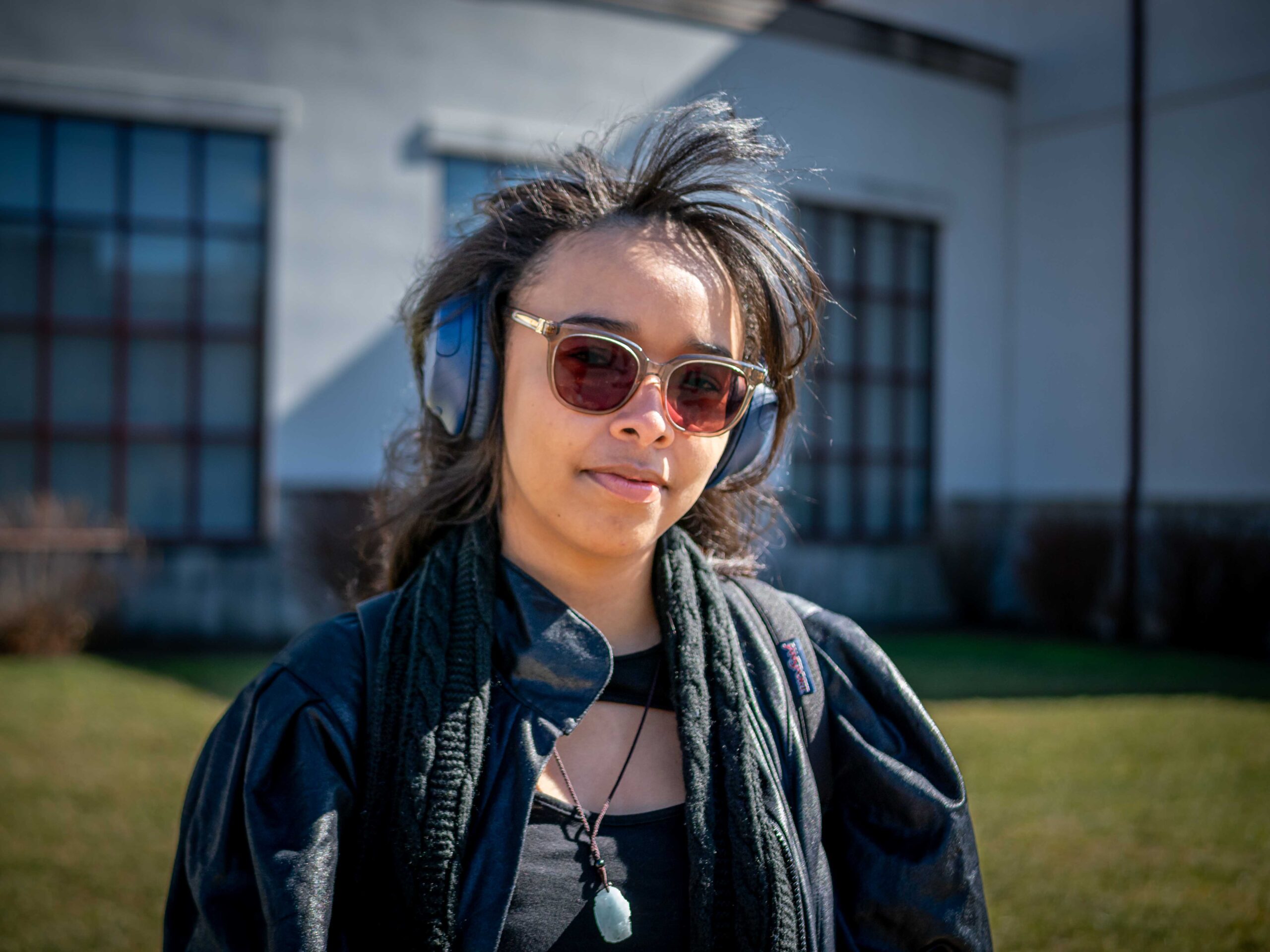
Ailine Aquino, freshman anthropology major. Karsten Englander | The Montclarion
“I think it’s great,” Aquino said. “I think it’s great to help us because I think this is an age when kids usually struggle with mental health. I think that the fact that there’s a group that’s there in case we need any help with that is pretty awesome.”
Paul Ranne, a freshman English major, described how the program can benefit him and anyone at Montclair State.
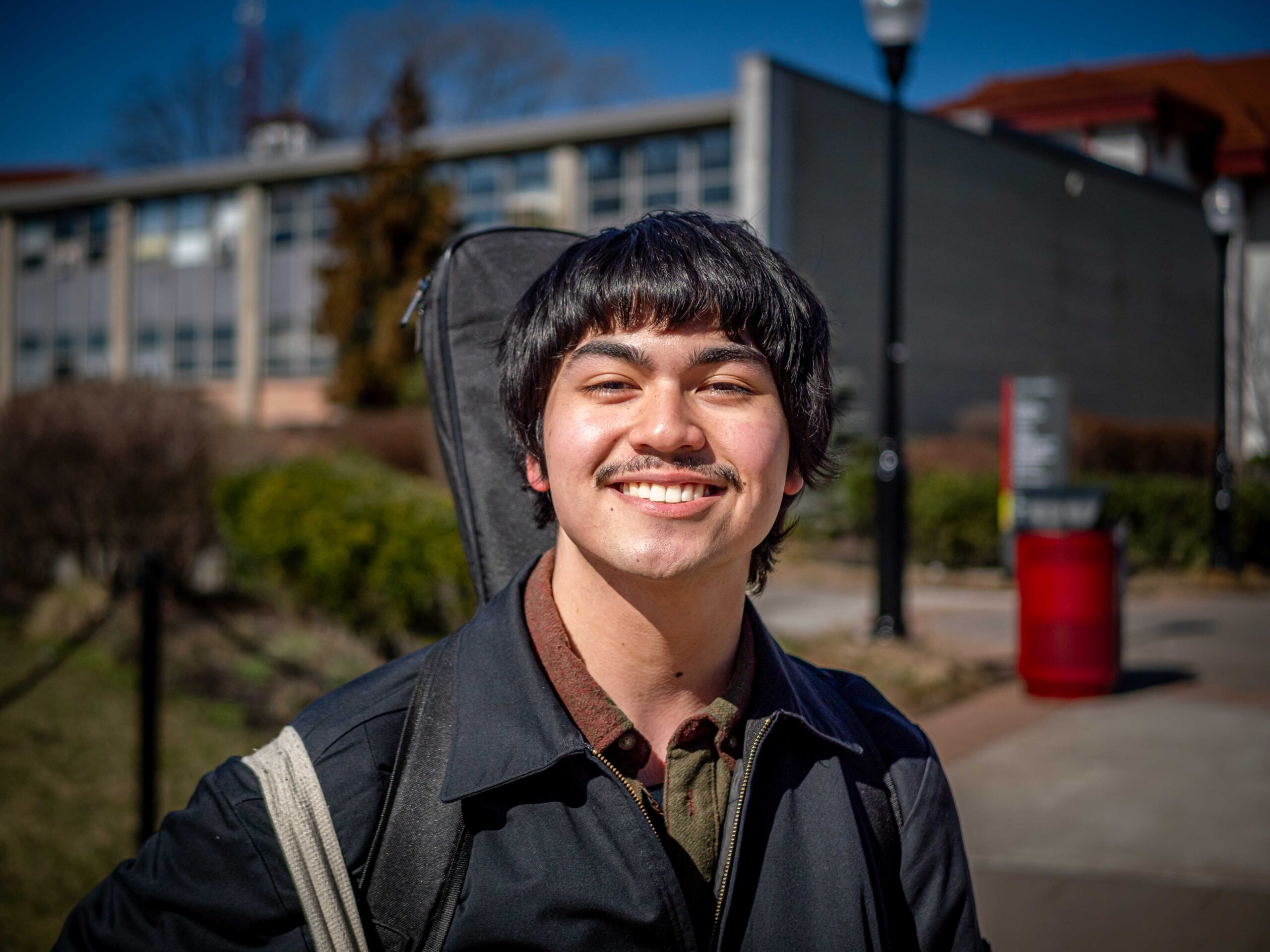
Paul Ranne, freshman English major. Karsten Englander | The Montclarion
“It gives an ear to people who don’t really have a friend group or a support system to talk to,” Ranne said. “[The mental health ambassadors] seem to be more professional than any other teenager that’s not a mental health advocate or a professional, which I think is great and better and should be everybody’s first option, especially if it’s free on campus.”

